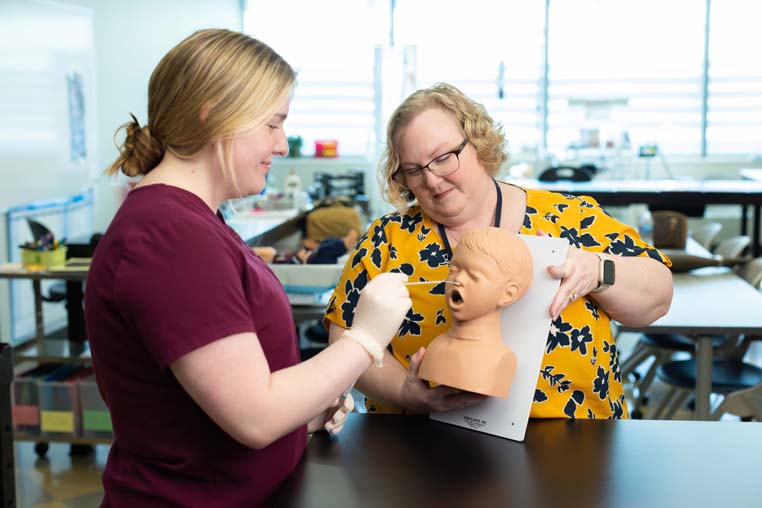Work alongside physicians as a multi-skilled healthcare professional.
What is Medical Assisting?
A Medical Assistant is an integral member of the health care delivery team, qualified by education and experience to work in the administrative office, the examining room, and the physician office laboratory. Medical assistants play a crucial role in ensuring smooth healthcare delivery and maintaining efficient healthcare facilities.
The Medical Assistant, also a liaison between the doctor and the patient, is of vital importance to the success of the medical practice. An individual in this versatile career may perform the following clinical and administrative duties according to state law: taking medical histories and recording vital signs, performing electrocardiograms, administering injections and immunizations, explaining procedures to patients, drawing blood, scheduling appointments, managing patient records, and assisting the physician during examinations and minor procedures.
Students will be prepared to take the Registered Medical Assistant national certification examination through American Medical Technologists upon graduation. Medical Assisting students will have the option to take the Registered Phlebotomy Technician national certification exam as well.

Getting Started
What are my degree, diploma, and certificate options?
How Do I Pay For This?
Worry no more. With the lowest tuition in Kentucky, financial aid options, and a helping hand to guide you through the application process, we have you covered. GCTC will help you reach your goals at a price that won't break the bank.
What Else Do I Need to Know?
Additional Information
| Year | Gateway Students | National Average |
|---|---|---|
| 2018 | 100% | 79% |
| 2019 | 100% | 84% |
| 2020 | 87% | 77% |
| 2021 | 100% | 73% |
| 2022 | 91% | 72% |
| Year | Gateway Students | National Average |
|---|---|---|
| 2018 | 91% | 85.2% |
| 2019 | 90% | 86% |
| 2020 | 92% | 83% |
| 2021 | 100% | 81% |
| 2022 | 86% | 82% |
Length of Program
You can earn an associate in applied science degree in two years if you maintain full-time status.
This information should not be considered a substitute for the KCTCS Catalog. You should always choose classes in collaboration with your faculty advisor to ensure that you meet all degree requirements.

